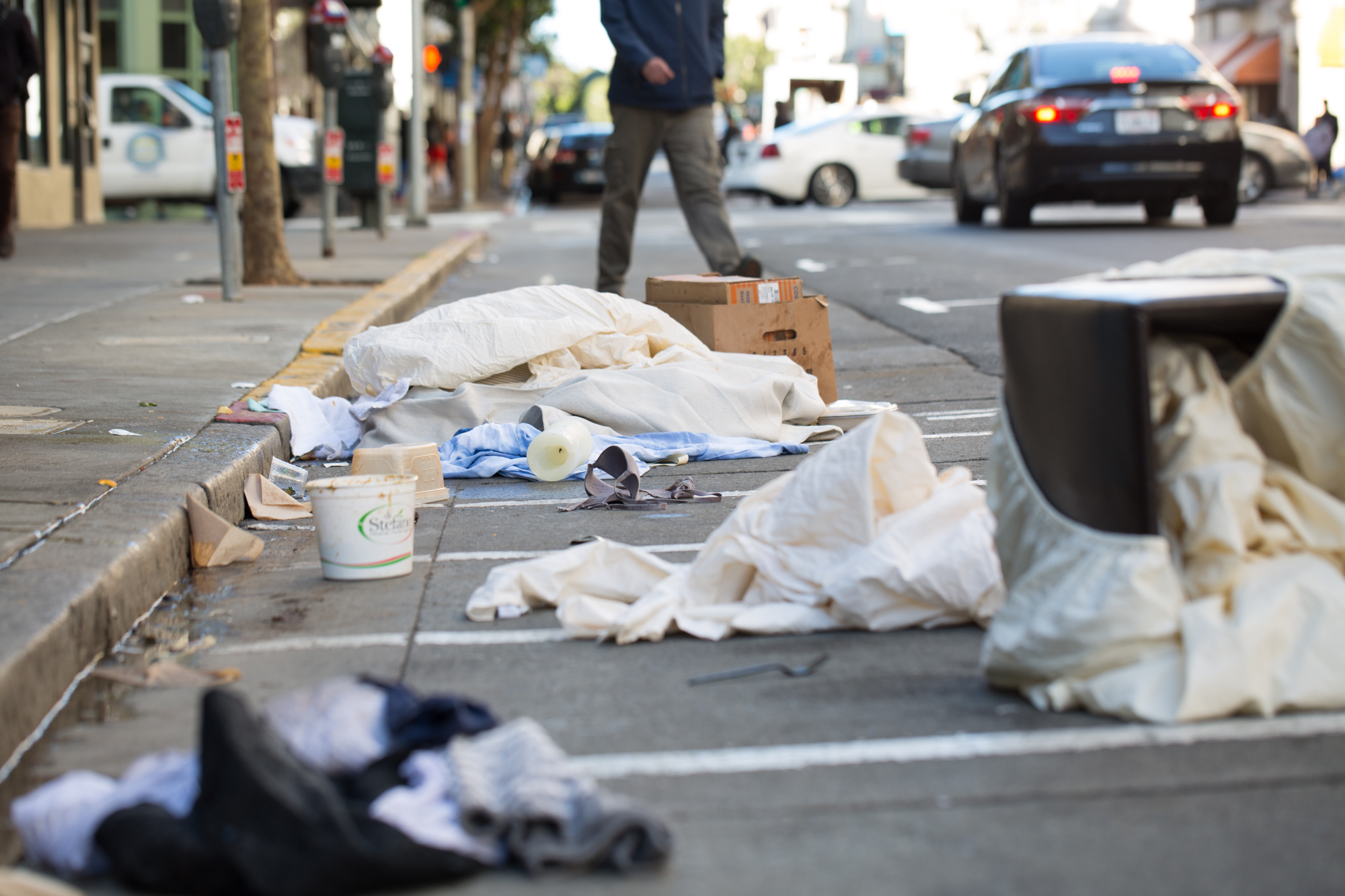San Francisco is one of the most exciting, dynamic, and richest cities in the world.
But it’s far from being the cleanest.
In February, the NBC Bay Area Investigative Unit spent three days surveying 153 blocks of downtown San Francisco to see what they would find. Their search turned up drug needles, garbage, and feces in concentrations comparable to some of the world’s poorest slums.
On a recent commute to Business Insider’s office in San Francisco, I took a detour through the Tenderloin neighborhood, where NBC conducted its survey, to see how the claim held up.
NBC Bay Area hit the streets of the Tenderloin and the surrounding Mid-Market area — a neighborhood known for its mix of high-powered tech companies and homeless people.

Read the full report from the NBC Bay Area Investigative Unit.
There, the city's chronically homeless denizens sleep outside the offices of Uber, Microsoft, Twitter, and Square. Almost half of the 7,500 homeless people in San Francisco live nearby.

Source: San Francisco Chronicle
NBC Bay Area surveyed the area bordered by Van Ness Avenue, Market Street, Post Street, and Grant Avenue in search of drug needles, trash, and feces. It kept track of the findings.

The survey found trash littered across every block.

"While some streets were littered with items as small as a candy wrapper, the vast majority of trash found included large heaps of garbage, food, and discarded junk," NBC Bay Area said.
Discarded needles were scattered across 41 blocks.

Dr. Lee Riley, an infectious disease expert at UC Berkeley, told NBC Bay Area that getting stuck by a disposed needle can pass on viral diseases like HIV and hepatitis B and C.

A whopping 91 blocks were dirtied with feces. The investigation found over 300 piles.

When fecal matter dries, some particles become airborne and can spread potentially dangerous viruses, such as rotavirus. Inhaling those germs can be fatal, Riley said.

In Los Angeles, an outbreak of hepatitis A has been linked to the city's 50,000 homeless people, who sometime defecate in the streets and spread the disease between tent cities.

Source: Fox News
Riley, who authored a book titled "Slum Health," has researched conditions across the poorest slums of the world and examined the risk factors of living in extreme poverty.

Based on the results of the NBC Bay Area survey, Riley said the contamination found in parts of San Francisco is "much greater than communities in Brazil or Kenya or India."

In some developing countries, slum dwellings often serve as long-term shelter for families. "There is an attempt to make the surroundings more livable," NBC Bay Area wrote.

In San Francisco, city agencies clear out homeless encampments at a near constant rate.

Those residents are forced to pack up their tents and belongings and relocate.


